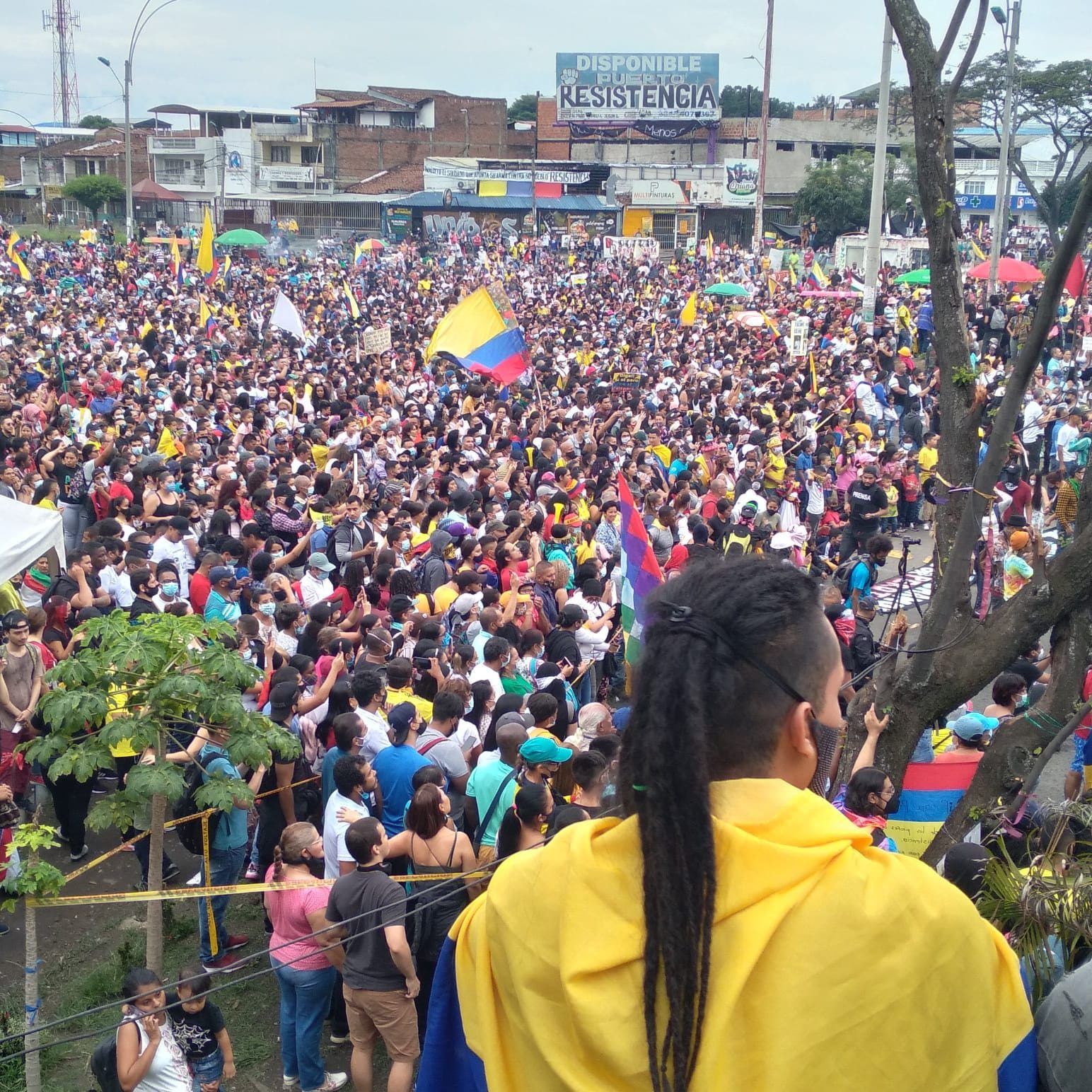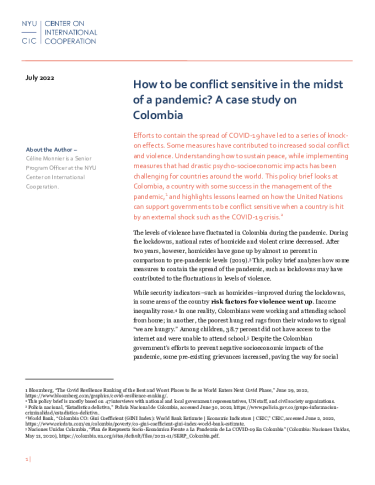Efforts to contain the spread of COVID-19 have led to a series of knock-on effects. Some measures have contributed to increased social conflict and violence. Understanding how to sustain peace, while implementing measures that had drastic psycho-socioeconomic impacts has been challenging for countries around the world. This policy brief looks at Colombia, a country with some success in the management of the pandemic, and highlights lessons learned on how the United Nations can support governments to be conflict sensitive when a country is hit by an external shock such as the COVID-19 crisis.

This policy brief analyzes how some measures to contain the spread of the pandemic, such as lockdowns may have contributed to the fluctuations in levels of violence, and provides four recommendations to prevent violence during major crises:
- The UN should call on member states to adopt conflict-sensitive policies to respond to major crises such as COVID-19
- The UN should support member states to develop conflict sensitive measures during a major crisis
- The UN could undertake a “lessons learned” exercise, including, e.g., PBSO, the UNDP-DPPA Joint Program, UNODC, WHO
- The UN could call on member states to develop a strategy to address residual risk factors for conflict deepened by the COVID-19 crisis
[ Read the full policy brief, How to be conflict sensitive in the midst of a pandemic? A case study on Colombia ]


